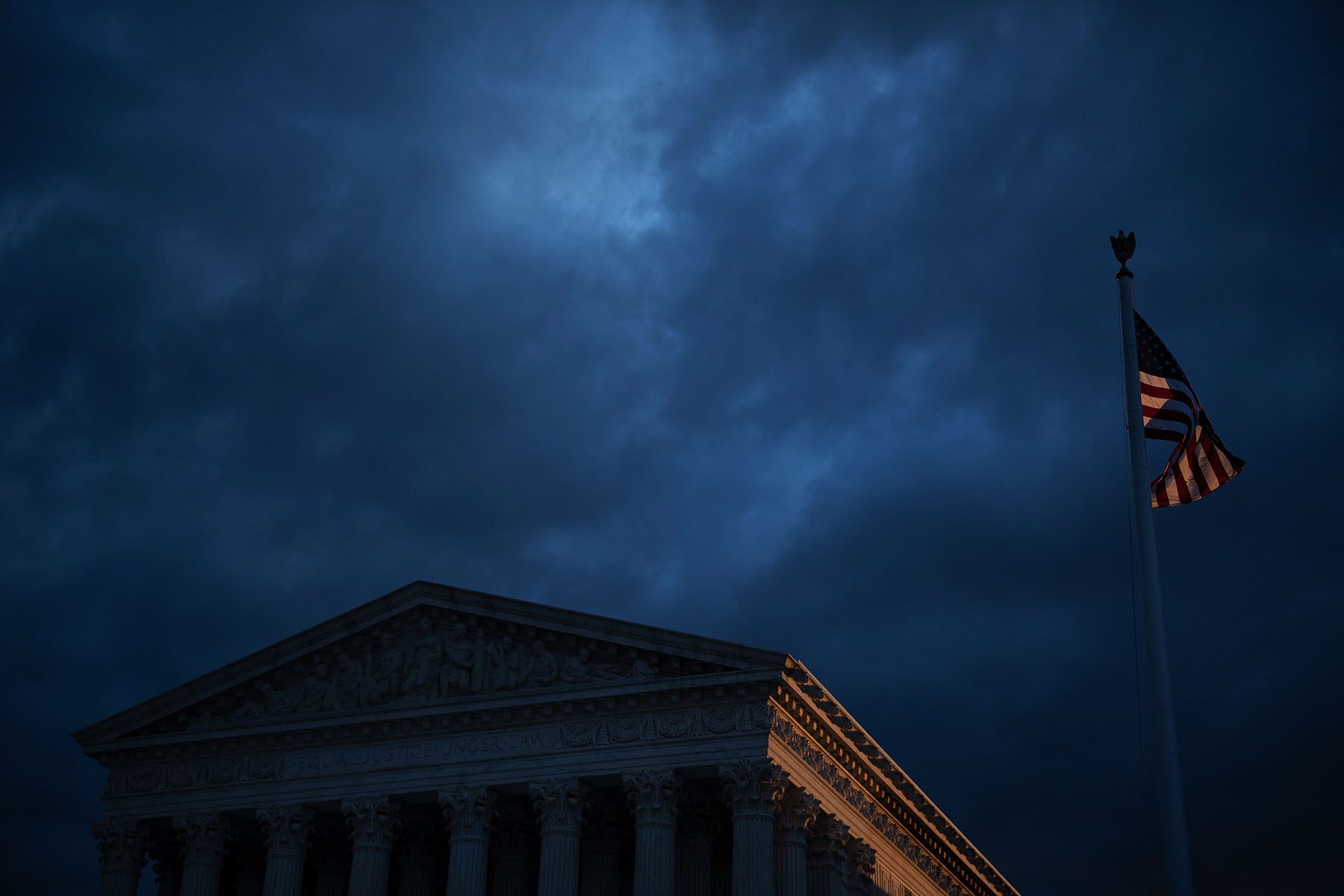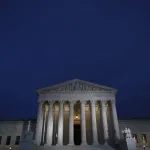The U.S. Supreme Court said Friday that it will hear two challenges to Texas’ six-week abortion ban on November 1. In the interim, the law — which has effectively ended access to abortion in Texas — will remain in effect.
The Court’s decision comes in response to a legal challenge initiated by the Department of Justice, which has argued the federal government suffers particular harm as a result of the Texas law. The government is also arguing that the law runs directly afoul of the precedent established in Roe v. Wade, which held that the Constitution guarantees the right to an abortion up until a fetus can live independently outside the womb — typically around 24 weeks of pregnancy.
The court said that it will merge this case with another legal challenge, which was initiated by abortion providers in Texas. The case could shape abortion rights for decades. If the court somehow upholds the Texas law, it will almost certainly pave the way for similar legislation in other anti-abortion states.
In a partial dissent, Justice Sonia Sotomayor supported the court’s decision to take on the case but issued scathing criticism of its refusal to block the law.
“These circumstances are exceptional. Women seeking abortion care in Texas are entitled to relief from this Court now. Because of the Court’s failure to act today, that relief, if it comes, will be too late for many,” Sotomayor wrote.
The Texas law has been in effect for almost two months. Rather than criminalizing the procedure, it says that anyone who “aids or abets” an abortion after six-weeks could be sued by private citizens. A successful plaintiff would receive at least $10,000, and have legal fees reimbursed by the state.
The court will not specifically examine the constitutionality of a six-week ban. Rather, the justices will be looking at the legality of Texas’ private enforcement setup, as well as whether the Justice Department has the right to challenge the law. But regardless of the specific questions at play, a decision in favor of Texas could still signal to other anti-abortion lawmakers that a ban like Texas’ is a viable path to pursue.
The law has virtually eliminated access to the procedure in Texas. Many clinics have stopped providing abortions altogether. Those who can afford the journey and are past six weeks of pregnancy are seeking abortions in surrounding states, including Oklahoma, New Mexico, Arkansas and Kansas. But many others — particularly those without the time off, financial resources or child care to travel out of state — may end up carrying unwanted pregnancies to term.
Abortions are now virtually unavailable for minors in Texas, who are required to either get parental consent or go through a special judicial approval process that makes it very difficult to meet the six-week deadline. Undocumented teens who are seeking abortions have been sent to immigration facilities in other states, because most of them already past six weeks when they discover they are pregnant.
“Texans deserved better than this,” said Amy Hagstrom Miller, the CEO of Whole Woman’s Health, one of Texas’ biggest abortion providers. “The legal limbo is excruciating for both patients and our clinic staff. Lack of access to safe abortion care is harming our families and communities, and will have lasting effects on Texas for decades to come. We’ve had to turn hundreds of patients away since this ban took effect, and this ruling means we’ll have to keep turning patients away.”
The federal government has sought legal relief. But the impact has been limited.
On October 6, a lower federal court first issued an injunction blocking the Texas law. U.S. District Court Judge Robert Pitman wrote that SB 8 had already resulted in “irreparable harm,” both for Texans seeking abortions and for the state’s fragile network of abortion clinics. He also wrote that the law clearly violated the Roe v. Wade precedent.
Only two days later, though, the injunction was in turn blocked by the conservative U.S. Court of Appeals for the 5th Circuit, which has jurisdiction over federal cases out of Texas.
Texas’ labyrinth of abortion restrictions — including a requirement that anyone seeking an abortion wait 24 hours between doctors’ visits — means that few patients were able to access the procedure in the brief window between rulings.
And at the time, many doctors indicated that they still did not feel safe providing abortions after six weeks, given the likelihood on an unfavorable 5th Circuit ruling. That is in large part because SB 8 includes a retroactive provision that means doctors who perform abortions even when the law is blocked could later be sued, if the law is reinstated.
President Joe Biden has criticized the Texas law, but the White House has not laid out any specific contingency plan in the event it is upheld.
“The President has been clear in his position that SB 8 is blatantly unconstitutional. It not only violates the right to safe and legal abortion established under Roe v. Wade, but it creates a scheme to allow private citizens to interfere with that right,” White House Press Secretary Jen Psaki said.
The long-term future is uncertain. The court, which has a 6-3 conservative majority, is generally considered hostile toward abortion rights. The court is also scheduled to hear a separate abortion case — Dobbs v. Jackson Woman’s Health — on December 1. That case examines the constitutionality of a 15-week abortion ban that was passed in Mississippi but has not taken effect.






